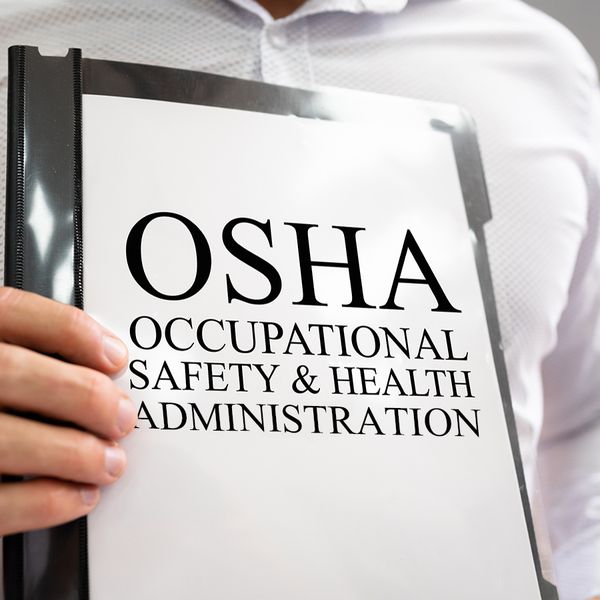OSHA proposes giving employers with ‘inherently risky professions’ a free pass
Motor sports, animal handling, and combat simulation training — what do these seemingly unrelated professions have in common? Under a July 1 proposed rule, OSHA would no longer use the General Duty Clause to cite employers with these and many other “inherently risky professions.”
What is the General Duty Clause?
Section 5(a)(1) of the Occupational Safety and Health Act, a law that took effect in 1970, requires employers to provide employees with a safe workplace. Specifically, section 5(a)(1), more commonly known as the General Duty Clause, mandates: “Each employer shall furnish to each of his employees employment and a place of employment which is free from recognized hazards that are causing or are likely to cause death or serious physical harm to his employees.”
The General Duty Clause extends OSHA’s authority beyond the Code of Federal Regulations (CFRs) when a recognized workplace hazard exists or potentially exists. In fact, the agency often uses it to cite employers when there’s no specific regulation that applies to a recognized hazard in the workplace. Common examples where OSHA might use the General Duty Clause to cite include those for:
- Ergonomic hazards,
- Workplace violence hazards,
- Extreme heat hazards,
- Lack of safety training,
- Failure to have chemical leak detection equipment or alarms, and
- Unsafe or blocked access to valves/instruments necessary to an employee's job.
To use the General Duty Clause to cite an employer, OSHA must prove four elements:
- The employer failed to keep the workplace free of a hazard,
- The hazard was recognized,
- The hazard was causing or likely to cause death or serious physical harm, and
- There was a feasible and useful method to correct the hazard.
The case that spurred the proposal
In February 2010, an animal trainer was killed by an orca whale during an amusement park show. In a subsequent 2014 court case, OSHA relied on the General Duty Clause to prohibit the park from exposing its trainers to the recognized hazard of close contact with orca whales during live performances.
The D.C. Circuit Court of Appeals upheld the citation (in Case No. 12-1375), holding that the amusement park must reduce the hazard by requiring a barrier or minimum distance between trainers and orcas. Yet, one judge dissented, arguing that the General Duty Clause doesn’t authorize OSHA to regulate hazards arising from normal activities that are intrinsic to professional, athletic, or entertainment occupations.
The case did not reach the Supreme Court. However, in light of the issues raised in the court dissent and developments in administrative and constitutional law, OSHA reexamined its authority under the General Duty Clause.
The latest proposal
Now, the agency proposes that the following employment sectors must no longer be cited under Section 5(a)(1) for certain activities, but notes that its list is not exhaustive:
- Live entertainment and performing arts;
- Animal handling and performance;
- Professional and extreme sports;
- Motorsports and high-risk recreation;
- Tactical, defense, and combat simulation training; and
- Hazard-based media and journalism activities.
If the proposed rule is finalized, employers would NOT have to remove hazards arising from inherently risky employment activities, where:
- The activity is integral to the essential function of a professional or performance-based occupation;
- The hazard can’t be eliminated without fundamentally altering or prohibiting the activity; and
- The employer has taken reasonable hazard-control efforts (e.g., through engineering controls, administrative controls, or personal protective equipment) that don’t alter the nature of the activity to control the hazard.
The agency seeks input on 14 questions specific to the proposal. Interested parties may comment by September 2. Search for OSHA-2025-0041 at regulations.gov to read and enter public comments. OSHA will analyze the comments to shape an upcoming final rule.
Key to remember: Under a proposed rule, OSHA would no longer use the General Duty Clause to cite employers of “inherently risky professions.” The agency seeks comment by September 2 on specific questions related to the proposal.






















































